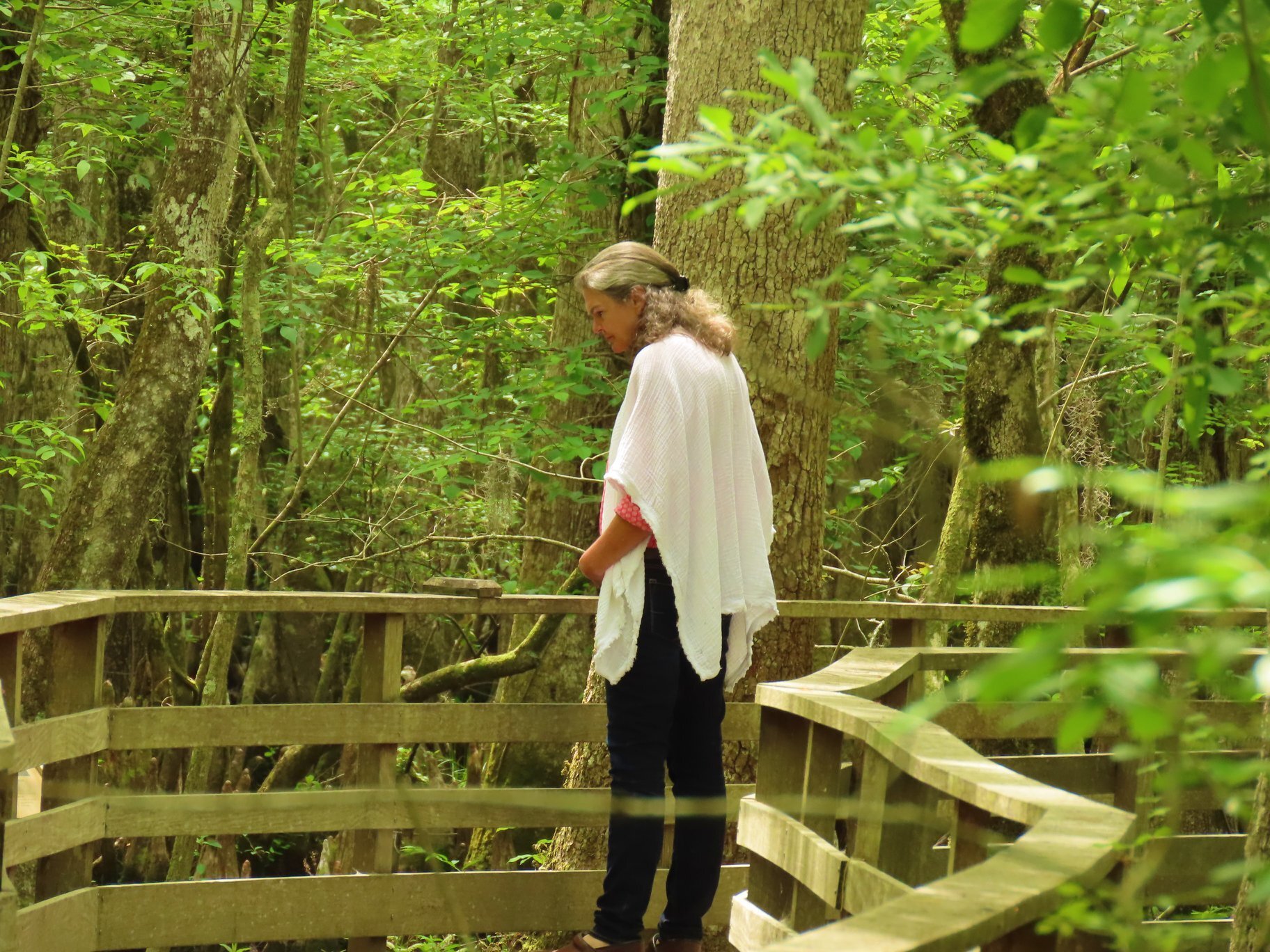Clash of Cultures the Landscape of the Sea Island Gullah
About Sharon E. Richardson
Born in Bogota, Colombia, and raised in Pennsylvania, the South Carolina legacy of the birth of my three daughters has bound my maternal tenacity with my professional passion— the passion for protecting the river corridors and the stories of the people who have lived because of the rivers, from the indigenous to the formerly enslaved, to present day communities.
My hope is to promote a greater appreciation for the river corridors, as a living system.
My mission is driven by truth and transparency to save the rivers, wetlands, and working lands of the Southeast, and restore a healthy relationship between communities and the land.
My goal is to advance the collective pride of cultural heritage as a conscious act of understanding the good, bad, and ugly of our shared relationships with the natural landscapes.
I hold a deep spiritual understanding of systematic and generational trauma of the disadvantaged and under-resourced descendent communities, often pushed to the edge.
I’ve been a long-time advocate for environmental and social equity and gender justice, I focus on landowners and communities in high-priority river watersheds and floodplain communities, to understand and remove barriers to investment in green infrastructure and incentivized solutions that benefit the greater public good moving from “Resiliency Beyond the Rhetoric” and into action and empowerment.
Cultural Conservation Strategist • Author • Speaker • Educator
Nature Based Solution Advocate • Impact Investment Advisor
Community Capacity Thought Leader
“My concept is to work with landowners and communities in high priority areas, especially in the floodplain communities, to understand and remove barriers to investment in green infrastructure.”
Sharon
A Clash of Cultures The Landscape of the Sea Island Gullah
Elizabeth Brabec and Sharon Richardson
Home to the Gullah people, the Sea Islands in the Lowcountry of South Carolina and Georgia contain a culturally and ecologically distinct landscape. Descendants of plantation slaves brought to the United States between 1640 and 1850, the Gullah community has maintained a cultural identity that is reflected in a landscape pattern that is often at odds with dominant American culture. By analyzing the history of the development of Gullah culture, the genesis, contemporary meanings, and significance of the Gullah landscape pattern can be read. This article develops an understanding of the Gullah concepts of land ownership, place, community and proxemics, and places those in the context of modern growth management planning issues.
Thank you so much for your interest. I look forward to meeting you.

